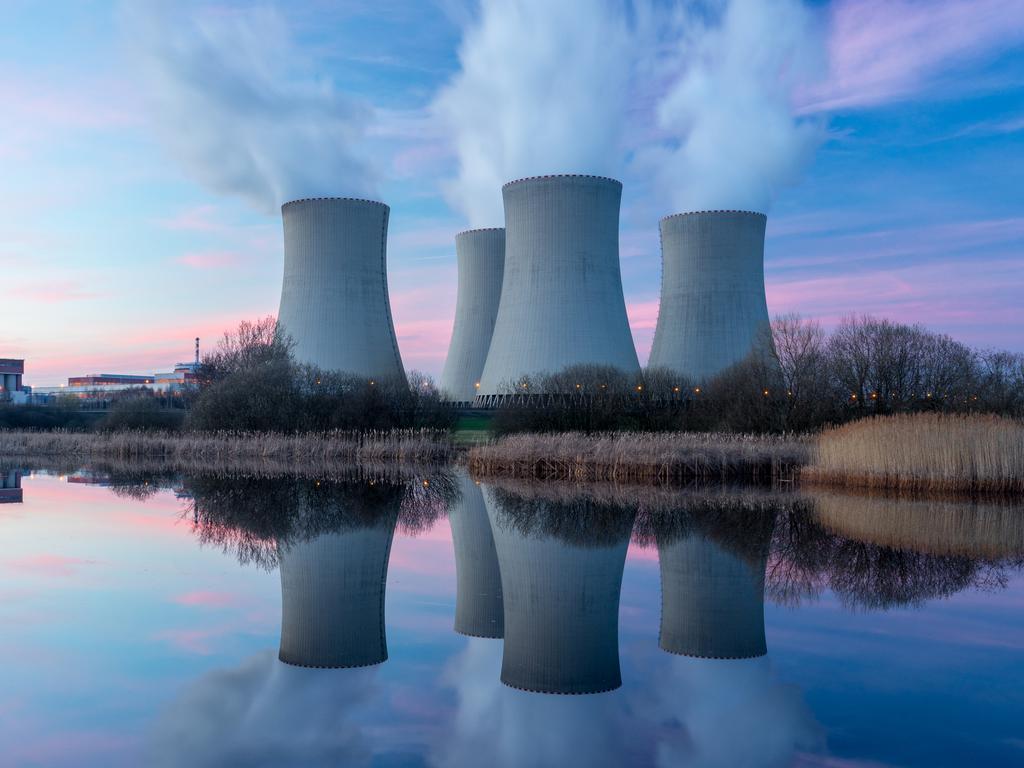
Thunberg is not alone in her anxiety. Ask any member of Gen Z today what they are afraid of and they will tell you: climate change. In a study of 10,000 young people in 10 countries, published in The Lancet in December last year, 59 per cent of young people surveyed around the world were found to be “extremely worried” about the climate, with 84 per cent at least moderately worried. More than 50 per cent felt sad, anxious, angry, powerless, helpless and guilty, and more than 45 per cent said their feelings interfered with their daily life and functioning.
One of the reasons this climate anxiety is so debilitating is because constructive messages that provide a feeling of hope are few and far between.
Which is one reason I’m excited about Isabelle Boemeke, the world’s first nuclear-power influencer. A former fashion model from Brazil, Boemeke is cutting through to a young audience with playful memes about the merits of nuclear power. It doesn’t hurt that she is gorgeous and funny. It also helps that her message is backed by a solid scientific consensus.
In a TED talk delivered this week, Boemeke describes how she became a nuclear power advocate after reading tweets from American planetary scientist Carolyn Porco, an advocate for nuclear. Porco piqued Boemeke’s interest as she assumed, like many of her peers, there was something wrong with nuclear power.
But after speaking to dozens of scientists and gathering their opinions on nuclear energy, she described receiving the same answer over and over again. The message was: 1) nuclear power is good; 2) we need it; and 3) people hate it. Why do people hate nuclear energy? Boemeke argues it’s because of a bad meme. A concept first developed by Richard Dawkins in The Selfish Gene, a meme is an idea that spreads through human cultures through imitation. Like a gene, a meme can self-replicate, mutate and respond to selection pressures. And like certain genes, memes can be advantageous or deleterious (like the genes for a heritable disease).
The meme that nuclear energy is bad is a particularly deleterious one for human civilisation. Created in the 1970s, the meme arose primarily out of a legitimate fear of global nuclear warfare. Groups such as the Campaign for Nuclear Disarmament, Friends of the Earth, Greenpeace and Peace Action opposed nuclear armament and testing.
the idea that nuclear power is bad is costing us our future, and it’s time to let go of it.
— isabelle 🪠(@isabelleboemeke) September 19, 2022
my @TEDTalks is now live! please watch and share, i’d love to hear your thoughts 💕 #tedtalk#nuclearpowerhttps://t.co/n5W0VeWBtIpic.twitter.com/guzmBCnCDg
But this concern mutated into hostility towards nuclear energy itself, a shift Boemeke argues was as irrational as opposing electricity on the basis of the electric chair. It is understandable many baby boomers harbour a deep-seated fear about nuclear energy. Yet for those of us born after the Cold War, the threat of nuclear war is much less salient.
Climate change, on the other hand, looms large as a profound existential threat.
Boemeke acknowledges that over the past 10 years, despite spending trillions on renewables, the world still gets only 8 per cent of its electricity from wind and solar. While Boemeke prefers renewables to fossil fuels, she is realistic in acknowledging that wind and solar are not enough. Her central argument is that nuclear power is humanity’s best hope for replacing fossil fuels.
On the issue of safety, Boemeke argues the problem is that nuclear accidents are rare but dramatic (attracting lots of attention), while deaths from fossil fuels are pervasive yet boring (attracting little attention). And she’s not wrong.
A 2018 study that measured global deaths from air pollution caused by the burning of fossil fuels such as wood and coal estimated that 8.7 million deaths occurred globally in 2018 alone. Boemeke points out that these statistics equate to 5.8 Chernobyls a day.
On the issue of nuclear waste, she tells her audience about the repositories being built deep underground in geologically stable locations in Finland and Sweden. On the issue of cost, she reminds us that solar energy was once considered to be too expensive but that we decided solar was “cool” and invested in it.
Boemeke’s vision is a challenging one but ultimately full of hope. “What if, instead of viewing nuclear power as destructive, we view it as a force for energy independence and even peace,” she asks. “What if this technology offers our best hope for the future? A future where wars aren’t funded by our addiction to fossil fuels. A future where energy is clean. A future where electricity finally makes its way to the 700 million people on earth who still don’t have access to it.”
The world has become accustomed to climate change activists who wish to take humanity backwards to a time of agrarian primitivism. From Extinction Rebellion fanatics who want to destroy capitalism, to Thunberg’s advocacy of the degrowth movement, too many environmentalists advocate for a strategy that would unwind our living standards and sentence the global poor to a destitute future.
A more positive vision of environmentalism is one that is not in conflict with capitalism, high living standards or technology. And it is one that is not in conflict with lifting hundreds of millions of people out of poverty, either.
If Thunberg was the face of climate anxiety, Boemeke may become the face of climate hope. All she asks is that we help her spread the meme that nuclear energy is cool.
Claire Lehmann is founding editor of quillette.com.








When she was 11, Greta Thunberg stopped eating for two months. Her heart rate slowed and her blood pressure dropped. She was anxious about climate change, an anxiety that would go on to spur a worldwide protest movement that culminated in her notorious “How dare you” address to the 2019 UN Climate Action Summit.